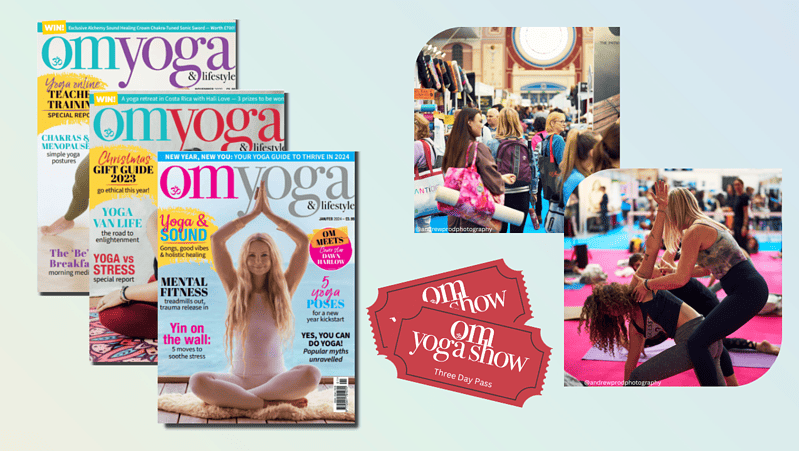
How Do You Know What Yoga Is Right for You?
Finding Your Perfect Yoga Style - By Beth Rush
Reading time: 3 minutes
Are you interested in yoga but don’t know what kind is right for you? Explore what’s best for relaxation and weight loss.
With so many styles and variations, how do you know what yoga is best for you? Finding the perfect fit may take trial and error until something gels. Ultimately, your reasons for doing yoga can guide you in the right direction. Here are things to consider when searching for the best yoga type for relaxation and fitness, as well as how often you should do it.
How Do You Know What Yoga Is Best for You?
Knowing what yoga best suits you, especially when starting a practice, can be overwhelming. However, you can sift through different classes with the following considerations:
- Experience: Classes should be appropriate for your experience level, whether beginner, intermediate or advanced.
- Goals: Your preferred yoga type should match your intended outcome, such as increasing flexibility, seeking stress relief or weight loss.
- Environment: The studio should exude a calm and relaxed atmosphere and be large enough to accommodate the number of people in each class comfortably.
- Instruction: The instructor’s teaching style should resonate with you and fit your experience level.
- Accommodations: Classes such as chair yoga should be accessible for people with mobility issues and disabilities.
- Location: The perfect yoga studio’s location and schedule should conveniently meet your needs and availability.
- Budget: Some yoga studios offer membership packages, discounts for military members, free meditation classes or introductory packages.
What Type of Yoga Is Most Beneficial for Relaxation?
If you’re constantly stressed at work and home, you might wonder what type of yoga is most beneficial for relaxation. Both restorative and yin yoga may be best for you, with gentle stretches and supportive poses to release tension throughout your connective tissues.
Both yoga styles encourage the use of bolsters, blankets and other props. However, you’ll probably use them more in restorative yoga classes. Some instructors also incorporate mindfulness into the practice, including body scans.
According to one study, a 10-week yin yoga regimen demonstrated positive effects on anxiety and stress during the COVID-19 pandemic. Unlike other yoga types, yin yoga emphasizes slow diaphragmatic breathing and holding poses for extended periods.
What Type of Yoga Is Most Beneficial for Weight Loss?
The U.S. Centers for Disease Control and Prevention recommends at least 150 minutes of physical activity weekly. So, what type of yoga is most beneficial for weight loss?
Yoga might not be on your radar as a workout, but some classes are more rigorous than others. For example, ashtanga, vinyasa and power yoga tend to incorporate more aerobics and consistent movement. Vinyasa and power yoga are also usually held in hot studio spaces.
Whatever type of yoga is right for you, you will likely increase your muscle tone and boost your metabolism over time. Even gentle yoga classes can help you lose weight.
How Often Should You Do Yoga?
There is no exact science behind how much yoga you should practice. Some days, you may want to participate more than others. However, doing it regularly has benefits for your body and mind.
Certified yoga practitioner Janie Gianotsos recommends a 30-60-minute daily yoga practice, even if it’s just once weekly. Eventually, you can increase sessions to twice or more each week. It’s best to listen to your body and what it needs to find the perfect balance.
Discover the Best Yoga Classes Near You
So, how do you know what yoga is best for you? Your best chance of finding the right fit is to try different classes within your experience level. You might even be surprised to see you like one style over another. Look up yoga studios near you and start booking sessions.







